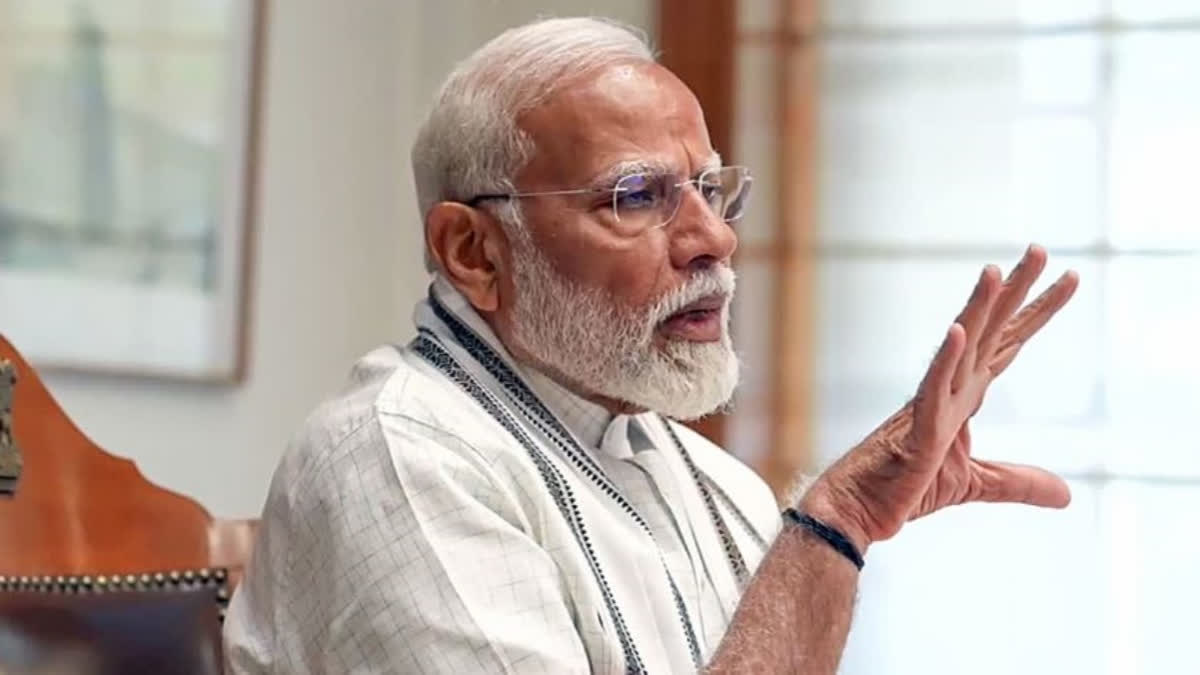New Delhi: After the debilitating elections, the outcome of the most awaited Lok Sabha polls will be announced on June 4, Tuesday. Amid the excitement of who would form the next government, one question that arises here is India's foreign policy and the challenges ahead as the global geopolitical landscape grows complex.
If the current party comes back to power, a changed policy and approach is expected, while a flurry of pending policy decisions is on the cards. A busy diplomatic schedule would be rolled out with PM Modi beginning his first foreign trip to Bangladesh, to attend Russia-hosted BRICS foreign ministers meeting, the G7 summit in Italy, the BRICS foreign ministers meeting in Russia, and the SCO summit in Kazakhstan.
A foreign policy expert said that it appears more than likely that PM Modi is coming back to power with a very emphatic victory and majority. "In that sense, his influence and clout in India will grow considerably in the world. The influence of India has grown over the last 10 years and it will become even more going forward. India will continue to focus on expanding its economic strength because, over the last 10 years, it has improved its position in the world from the 10th to the 5th largest economy and the country should grow to the third largest economy. When our economy grows, India's capacity to play a much bigger role in the global platform also increases", India's former ambassador Ashok Sajjanhar told ETV Bharat.
He said, "India will continue to focus on its relations with the US, that is going to be the most consequential relationship and will continue to be the same be it in the area of defense, economy or technology irrespective of the result of the US presidential election in November".
Sajjanhar stated, "India is likely to maintain normal relations with Russia. The manner in which India has used its strategic autonomy and maintained its relations with Russia in the face of very strong opposition from the West has increased the growing importance of India for Moscow. Also as the dependence on China increases, Moscow would like to maintain strong and dynamic ties with India in terms of economy, trade, and defense".
"India will continue to maintain its focus on Europe and West Asia. India is also likely to host the Quad Summit meeting before the US election this year or beginning of next year. Prez Biden is also visiting New Delhi which might send out a strong message that India is supportive of Biden's presidency", said the ex-envoy.
It is important to note that the changes India is witnessing are strongly influenced by the elections happening worldwide in 2024, including in the European Union and the US. This means that most multilateral forums, where these key players and India are major contributors, will be subject to domestic political pressures and issues.
Furthermore, Russia, a long-standing partner of India, recently completed its election, and President Putin, upon reelection, made his first state visit to China last week. Both Russia and China, as key permanent members of the UN Security Council, are not likely to align their interests and policies with the US-led block any time soon.
Sajjanhar further pointed out that while the greatest promise lies in the relationship with the US, the greatest challenge lies in the relationship with China. He stated that "China has not been taking India's concerns seriously and with PM Modi coming back to power, will certainly send out a message to Beijing that to have normal relations, it is important to maintain peace and tranquillity at the border. The ball is in China's court".
Prime Minister Modi's foreign policy goals have included enhancing India's global standing, fostering economic growth through international partnerships, strengthening regional cooperation, and ensuring national security. He has also emphasized India's role as a responsible global actor and sought to bolster ties with key strategic partners while maintaining a balanced approach towards major powers like the United States, China, and Russia.
Reforming multilateral institutions, especially the UN and a permanent membership, has also been a long-term foreign policy goal for PM Modi. In the wake of geopolitics, the new Government will have its task cut out on foreign policy.
Read more



